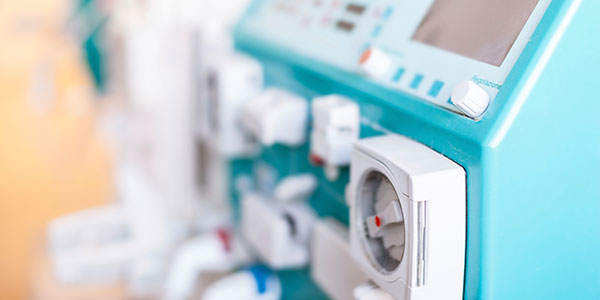Dialysis—a mechanical process that filters wastes from the blood—is not a cure for kidney disease, but it will preserve your life and help you feel better when your kidneys can no longer do their job.
You can choose one of two dialysis types. Hemodialysis uses a machine, called a dialyzer, to filter wastes and remove extra fluid from the blood as well as to restore electrolyte balance. Peritoneal dialysis uses a natural filter inside your body—the lining of your belly, called the peritoneal membrane—to do the same.
After starting dialysis, most people with kidney disease feel better within a week or two. But it can take a month to see a change in your symptoms.










